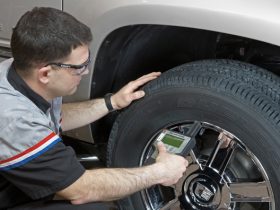Have you ended up with a lemon on your hand? The countless trips to the repair facility is a frustrating process. However, the good news is that there are states laws in the U.S. to protect your rights, which helps you to get a complete refund.
Understanding Lemon Laws
Each of the 50 states of U.S.A. have their own lemon laws, which differ from state to state. The rules usually differ in factors such as the durability of a consumer’s lemon law rights after the vehicle was delivered, the number of attempts a manufacturer gets to repair the lemon car, the rights of a lessee in comparison to the rights of a purchaser, the kind of vehicle covered under these laws, and so on. For example, your car will be qualified as a lemon in Connecticut if it has gone though “4 unsuccessful repairs or 30 calendar days out of service within shorter of 2 years or 24,000 miles”.
In California, on the other hand, a car qualifies for a lemon only if it meets one or more of the criteria mentioned in its lemon laws within 18 months from the delivery of the car or 18,000 miles on its odometer, whichever is first. Similarly, every other U.S. states have different criteria for lemon laws. Therefore, if you end up buying a lemon in California, it is advisable to speak to an experienced California lemon lawyer to know more about the rules and evaluate your case.
In addition, it is imperative to know what you can expect and what you need to do before you file a lemon claim. The following are 4 tips to help you strengthen your case.
1. Get Your Documents Right
It is most crucial to keep detailed records of all your documents if you want the lemon laws to work in your favor. Document everything – your sales contract, the warranty, the repair orders, and even your phone conversations with your car dealer or manufacturer. These documents work as your key witnesses in the court and will work in your favor, should your case go that far.
Maintain a detailed account of each problem as well as of all repair attempts that your car encountered, including how long your car was out of service. The best practice is to submit a written list of problems and symptoms along with dates to your dealer or manufacturer and remember to keep a copy for yourself. Chances are, your dealer’s technician will be unwilling to duplicate your concern and is more likely to document the issues as “no problem found”. Therefore, remember to take photos and videos along with your written documents to eradicate any scope for such alternations.
Finally, document your repair invoices. These will prove to be the evidences that the problem(s) were brought to the dealer/manufacturer’s attention.
2. Double Check Your Repair Orders
This again is a part of your documentation. Pay attention that your repair facility documents your concern accurately on the repair order. Often the repair facility tends to alter or change the complaint. Don’t let this happen to you.
Every state has a specific format for this; ensure that your repair facility follows right format. For instance, the Bureau of Automotive Repair in California has a set of rules in their Write it Right manual, which requires all repair orders to follow the general format called the 3 C’s. These are – Concern, Cause, and Correction. According to this manual, your repair orders must include the exact nature of the problem that your car has, what is the cause of the problem, and the measures taken to resolve it.
Even a small change or alteration in the repair order can negatively affect or destroy your lemon claim. So every time you visit the dealer for a problem in your new car, collect the repair order for that particular visit and make sure to draft all the entries, correctly.
3. Do a Thorough Research
When contemplating a lemon case, do your research thoroughly. As mentioned, your dealer will always try to make the issue look like a petty one. However, it is your responsibility to make them take your complaint seriously.
Vehicle manufactures issue a Technical Service Bulletin or TSB to dealerships to keep them updated about problems or known conditions on certain vehicles that have come to the former’s attention. Ask the service representative for the TSB and see if you can find anything about the current problem(s) on your car. In case you find something, tell your dealer/repair facility to notate the same on your repair order.
In addition, check for recalls or service complaints (if any) on your specific car at the National Highway Traffic Administration’s website.
4. Know Your Rights
In U.S., there are federal and state lemon laws to protect the consumers’ right. Therefore, even if you fail to qualify under state lemon laws, you may still qualify under the federal law. This is where a knowledgeable and experienced lemon law lawyer comes into the picture, who is well versed with the legal tactics for winning such cases.
There are basically two legal remedies, should your car qualify as a lemon. First, you can demand a replacement from the manufacturer or ask for a refund, which includes registration fees, sales tax, and reimbursement for all your out-of-pocket expenses while the car was in your possession. Please note that a small mileage offset is deducted, depending on the number of miles you drove the car before reporting the first problem. There is no need to pay any sales tax or other fees, should you choose for a replacement car.
Conclusion
Having a lemon is an exasperating experience. In addition, it is even more frustrating if your defective car fails to qualify under your state’s lemon laws. Nevertheless, don’t worry, there are other laws that may help your case. Contact a lemon law lawyer to evaluate your case before it’s too late.






















